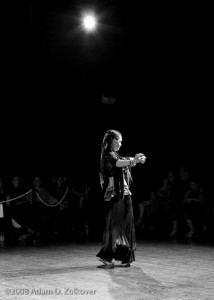Image from Wikimedia under a Creative Commons license. Originally uploaded by user Fry1989.
I thought about putting this post over at my sex education site, but decided to publish it here instead. Why? Because I’m increasingly convinced that activism needs to be a part of my scholarship as well as my daily life.
The state in which I currently reside, Indiana, has passed a so-called “Religious Freedom Restoration Act” (RFRA, also known as SB101). As this Huffington Post blogger explains, it basically opens the door to discrimination against groups that are not currently protected from such – namely, LGBTQ folks and other sexual minorities, anyone to whose existence a religious group might object.
While I generally support protests and even certain boycotts, in part to raise consciousness and in part to display displeasure, I have to agree with friend and colleague Mike Underwood who states:
Rather than a blanket boycott of Indiana, I’d suggest a strategic and vocal boycott of businesses seen to use this law to discriminate against marginalized persons. Instead why not vocally patronize inclusive businesses?
And on top of that, fight to make sexual orientation a protected class for the entire state, and to get SB 101 overturned so a more reasonable protection for religious expression can be crafted and implemented.
Boycotts punish everyone, and tend to disproportionately hurt smaller business of those already marginalized.
That’s why I’ve started asking establishments that I go into what their policy on RFRA is. And you know what? It seems like a small act, but it has so much potential.
Already I’ve spoken with employees at my favorite cafe on the northside of Indy, and heard that they promote tolerance and inclusion. I cheekily replied that I’d be happy to give them more of my money. What I wasn’t expecting was for one of the employees to approach me as I was packing my things to leave, and to warmly thank me for bringing up the issue. That was really touching, and a good reminder that activism isn’t just about creating concrete change in economic patterns, but also about connecting with people.
On the scholarly side, we’ll see how much attention I can give this issue in my classroom. On the one hand, I may not need to mention it much, as my wonderful students this semester have already posted links to relevant news in our online discussion group. On the other hand, my status as a PhD-wielding college lecturer gives my words a certain amount of weight, and so speaking up might infuse some opinions with a bit more legitimacy, and give my students something to fall back on if they want to mention our hypothetical classroom discussions to their peers or family members.
As Kelly J. Baker points out, scholarship and activism have an uneasy relationship: “Activism appears to have merit when it can be neatly attached to one’s scholarship or a vision of a shared politics.” I’m already pretty “out there” as a scholar who does a lot of work on gender, sex, and sexuality, so it’s probably not surprising to anyone that I hold the position that RFRA is thinly-disguised homophobic bigotry.
We’ll see how things go with this (abhorrent) piece of legislation. I’m going to try to speak up as much as I can, in both formal and informal settings, in part because I have a privileged position as an institutionally-recognized scholar, and in part because I get to vote with my wallet, and make human connections while doing so. I also get to lean on some personal privilege here, as I walk around wearing a wedding ring and am cisgendered. In my mind, one of the better things to do with privilege is use it to challenge the status quo and help others out, so hopefully I can do some of that here.

